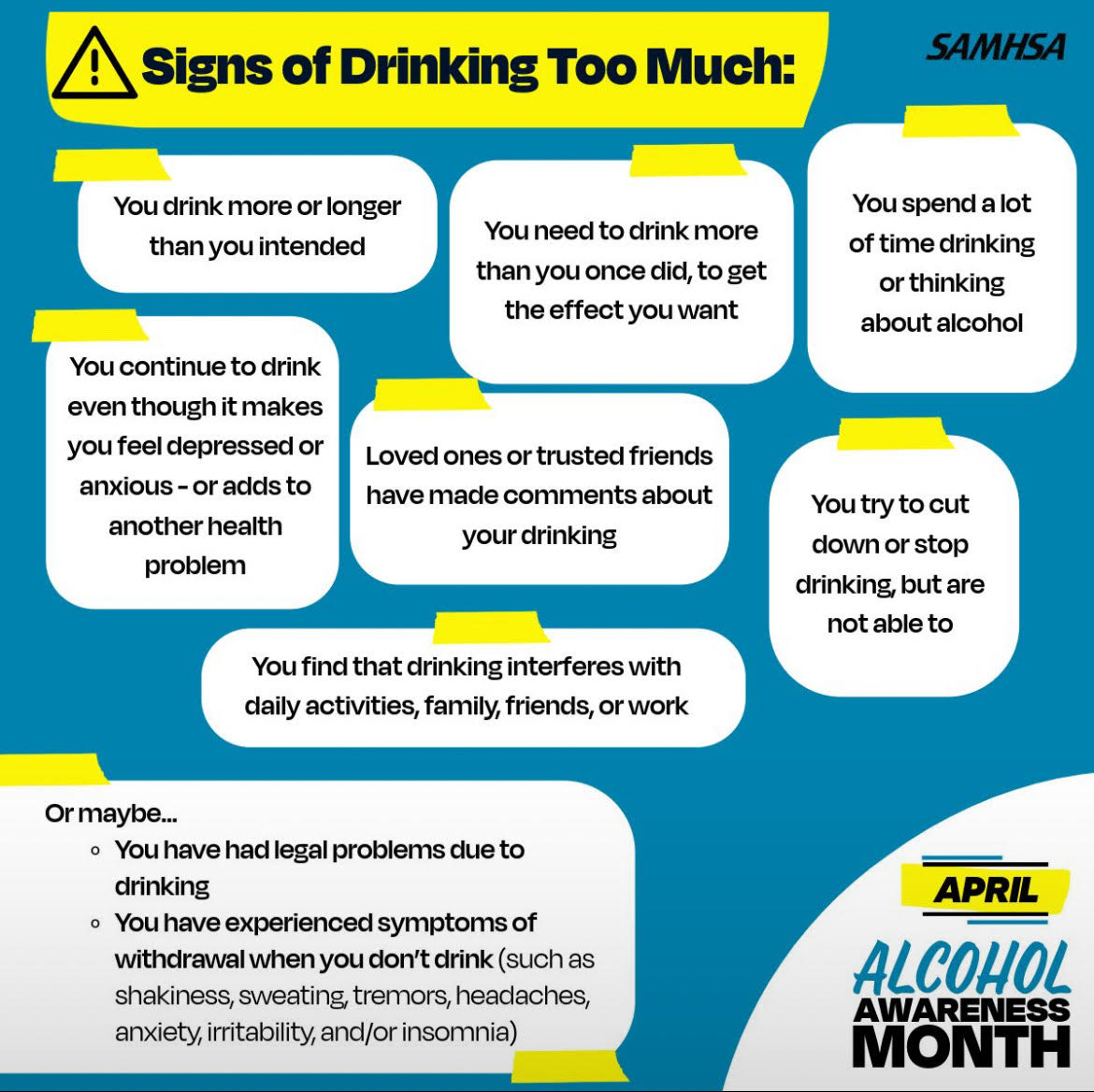- Increased Tolerance: Needing more alcohol to feel the same effects.
- Withdrawal Symptoms: Experiencing discomfort when not drinking.
- Loss of Control: Inability to limit alcohol intake.
- Neglecting Responsibilities: Prioritizing alcohol over work, family, or social obligations.
- Failed Attempts to Cut Down:Unsuccessful efforts to reduce or quit drinking.
- Craving: Strong desire or urge to consume alcohol.
- Spending Excessive Time Drinking: A significant amount of time spent obtaining, using, or recovering from alcohol.
- Continued Use Despite Consequences:Persisting with drinking despite negative effects on health, relationships, or job.
- Reduced Interest in Hobbies: Losing interest in activities that were once enjoyable.
- Isolation: Withdrawing from friends and family.
If you or someone you know shows these signs, seeking professional help is crucial for addressing alcohol addiction.
Dr. Mohammed Abdul Rahman Khan, MD (Psychiatrist)
Discussion:
Alcohol addiction is a serious issue affecting millions of people around the world. It can have devastating effects on a person’s physical and mental health, as well as their relationships and daily life. Alcohol addiction can be hard to recognize in yourself or in a loved one, so it’s important to be aware of the signs and symptoms. One of the most common signs of alcohol addiction is a physical dependence on the substance. People with alcohol addiction may experience withdrawal symptoms when they try to stop drinking, such as shaking, sweating, nausea, and headaches. They may also develop a tolerance, meaning they need to drink more and more to feel the same effects. Another sign of alcohol addiction is an inability to control how much someone drinks. People with alcohol addiction may find themselves drinking more than they intended, or drinking in dangerous situations. They may also find themselves preoccupied with thinking about, getting, and using alcohol, and they may be unable to think of anything else.
Even the most cursory skimming of the literature on alcoholism or, more broadly, substance abuse, would show you that the term “alcoholic” means different things to different people and thus is not a particularly useful term. To some, an alcoholic is the guy passed out in the gutter using an empty bottle of rotgut as a pillow. To others, anyone who drinks at all is an alcoholic; they just aren’t as far down the slippery slope as others.
The word “addiction” has a specific definition. There are people who binge drink, and that is a form of alcohol abuse, but it is not necessarily the same as addiction. If someone is addicted to alcohol they are abusing it by definition but are also unable to control their drinking at any given time. For example, a binge drinker might be totally fine Monday through Friday and then party hard all weekend and go a little overboard, but on Monday they can handle going to work and not drinking the rest of the week. Or maybe they only drink on holidays or certain social events, but when they do, they go all out. A traditional addict does not discriminate when or where … .any occasion can be justified as a reason to drink and their brain has difficulty coping with day to day life without it. Alcohol abuse, however, can be a warning sign that a full blown addiction is a possibility and is where most addicts start before they realize suddenly that it has taken over their life. If you are constantly thinking about getting another drink, or have trouble coping with stress or anxiety or social situations and your instinct is to grab a drink to get through it, that is definitely a red flag to watch out for. If you tell yourself you’re only going to have a couple of beers and next thing you know you’ve downed the whole 6 pack, that can also be a red flag. If you downplay or outright lie to people about how much or how often you drink you’re definitely in addict territory. Do you have a family history of addiction? That is another factor to consider. If you are questioning whether or not you have a problem, however, that likely means that there IS a problem and the sooner it is acknowledged the easier it will be to turn things around.
Treatment Options:
- Detoxification: The first step in treatment is often medically supervised detoxification, which helps manage withdrawal symptoms as the body adjusts to the absence of alcohol. This process may involve medications to alleviate symptoms and prevent complications.
- Behavioral therapies: Psychotherapeutic interventions, such as cognitive-behavioral therapy (CBT) and motivational enhancement therapy (MET), help individuals identify and change harmful thought patterns and behaviors related to alcohol use. These therapies also focus on developing coping skills and relapse prevention strategies.
- Medications: Certain medications, such as naltrexone, acamprosate, and disulfiram, may be prescribed to help reduce cravings, prevent relapse, or create an aversive reaction to alcohol consumption.
- Support groups: Peer support groups, such as Alcoholics Anonymous (AA) or SMART Recovery, provide a supportive environment where individuals can share their experiences, learn from others, and maintain accountability in their recovery journey.
- Residential treatment: In some cases, individuals may benefit from a structured, residential treatment program that provides intensive therapy, medical care, and a supportive living environment away from triggers and stressors.
- Aftercare and ongoing support: Recovery from alcohol addiction is a long-term process that requires ongoing support and management. Aftercare programs, such as outpatient therapy, sober living homes, or continued participation in support groups, help individuals maintain sobriety and prevent relapse.
- Treatment of co-occurring disorders: Many individuals with AUD also have co-occurring mental health disorders, such as depression or anxiety. Integrated treatment that addresses both the addiction and the mental health condition simultaneously is crucial for long-term recovery.
Remember, recovery from alcohol addiction is possible, and seeking help is a sign of strength, not weakness. With the right support and treatment, individuals can overcome addiction and lead fulfilling, healthy lives.
